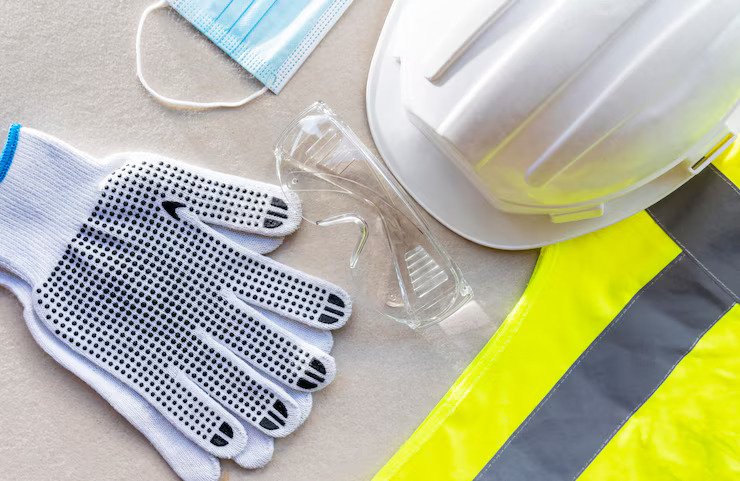In today’s fast-paced industrial landscape, safety isn’t just a box to tick—it’s a commitment. For businesses across Saudi Arabia, particularly in construction, manufacturing, and oil and gas, compliance with PPE (Personal Protective Equipment) regulations is not just a legal obligation—it’s a business imperative. But why does PPE compliance matter so much? And what lessons can Saudi businesses learn to ensure both protection and productivity?
Let’s break it down.
🛡️ PPE Compliance Isn’t Optional—It’s the Law
The Saudi Ministry of Human Resources and Social Development, in collaboration with safety agencies, has made workplace safety a national priority. With Vision 2030 driving modernization and investment across industries, the emphasis on labor welfare is stronger than ever. PPE compliance is regulated by standards such as the Saudi Building Code (SBC) and ISO certifications, which ensure that workers have access to essential safety gear—helmets, gloves, masks, goggles, harnesses, and more.
Failing to meet these standards doesn’t just mean fines. It can lead to project delays, license revocations, and a tarnished reputation.
⚠️ The Real Cost of Non-Compliance
Think PPE is expensive? Try calculating the cost of a serious injury.
Non-compliance can lead to:
-
Workplace accidents and lawsuits
-
Disruptions in operations
-
Low employee morale
-
Higher insurance premiums
A single incident can have a ripple effect, damaging your brand and halting projects. The loss of skilled labor due to injuries or unsafe conditions is a hit no growing business can afford.
🧰 Lessons for Saudi Businesses: Don’t Just Buy—Implement
Here’s the truth: supplying PPE isn’t enough. The real challenge lies in enforcing proper usage and building a safety-first culture.
1. Invest in Training
Equip workers with the knowledge, not just the gear. Regular safety drills, toolbox talks, and hands-on demonstrations go a long way in ensuring Safety & PPE is used correctly.
2. Audit Regularly
Set up internal safety audits to check compliance. Involve third-party safety experts to give unbiased reports.
3. Choose the Right Equipment
Not all PPE is made equal. Ensure your equipment meets international and local standards. Comfort matters too—if gear is uncomfortable, workers will avoid it.
4. Lead by Example
When management and supervisors wear their PPE and follow protocols, it sets the tone for the rest of the workforce.
🌍 Saudi Arabia’s Opportunity: Be a Regional Leader in Workplace Safety
With massive development projects like NEOM and The Red Sea Project underway, Saudi Arabia is on the global stage. Adopting and enforcing strict PPE protocols not only protects workers but also shows the world that Saudi businesses are committed to excellence, responsibility, and sustainable growth.
✅ Final Thoughts
PPE compliance is more than a rule—it’s a reflection of your company’s values. For Saudi businesses aiming to grow, attract international partners, and retain a skilled workforce, prioritizing safety through robust PPE programs is non-negotiable.
Remember: when you protect your people, you protect your business.





